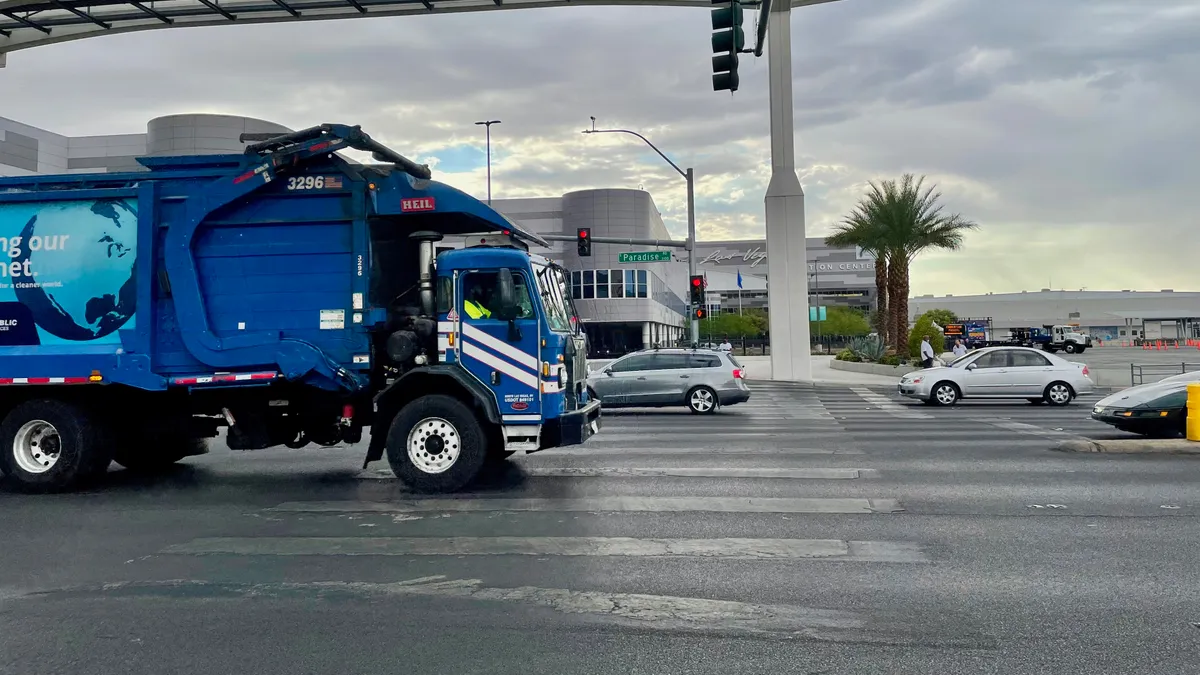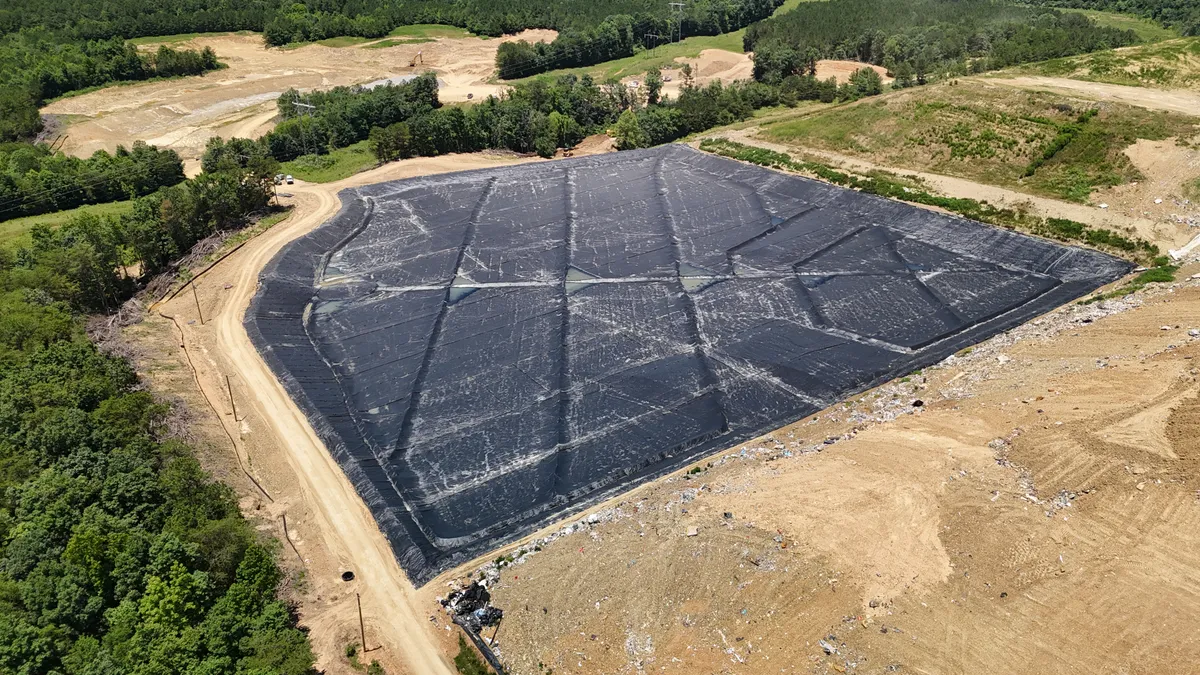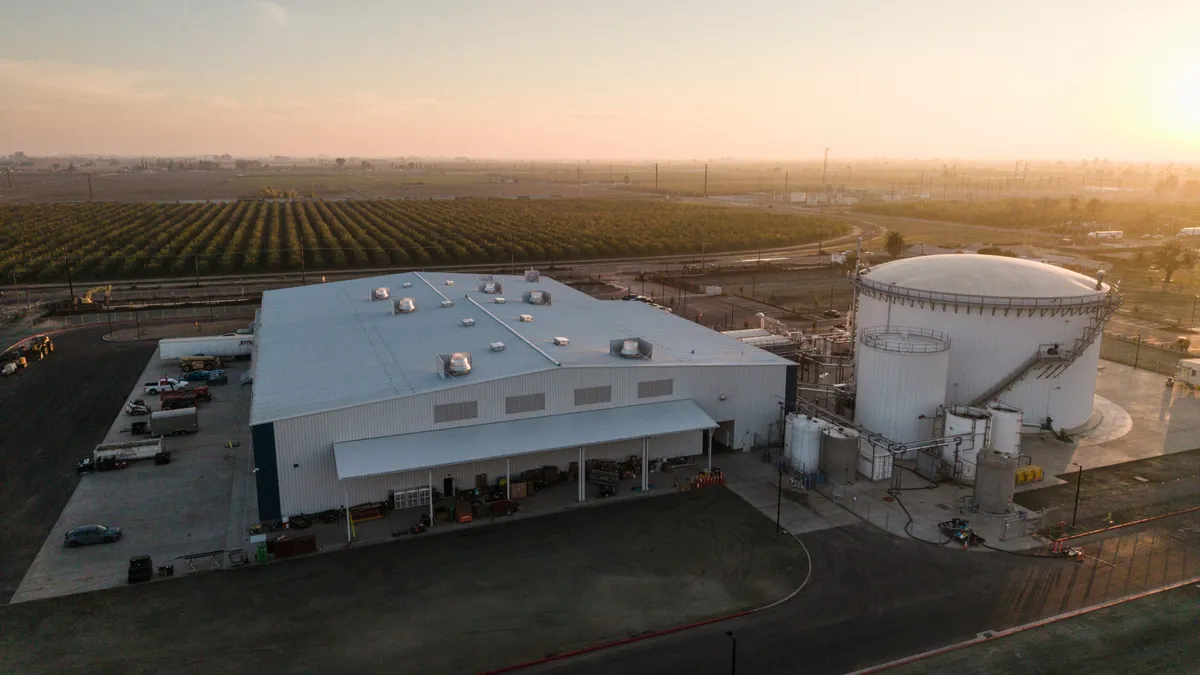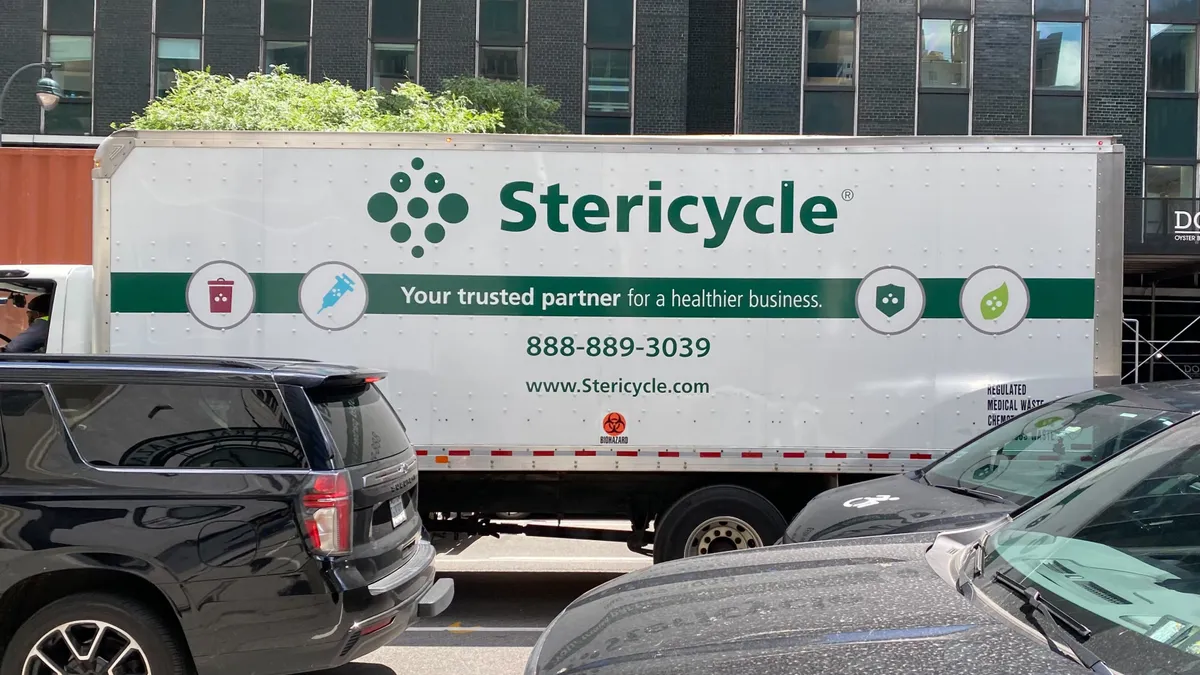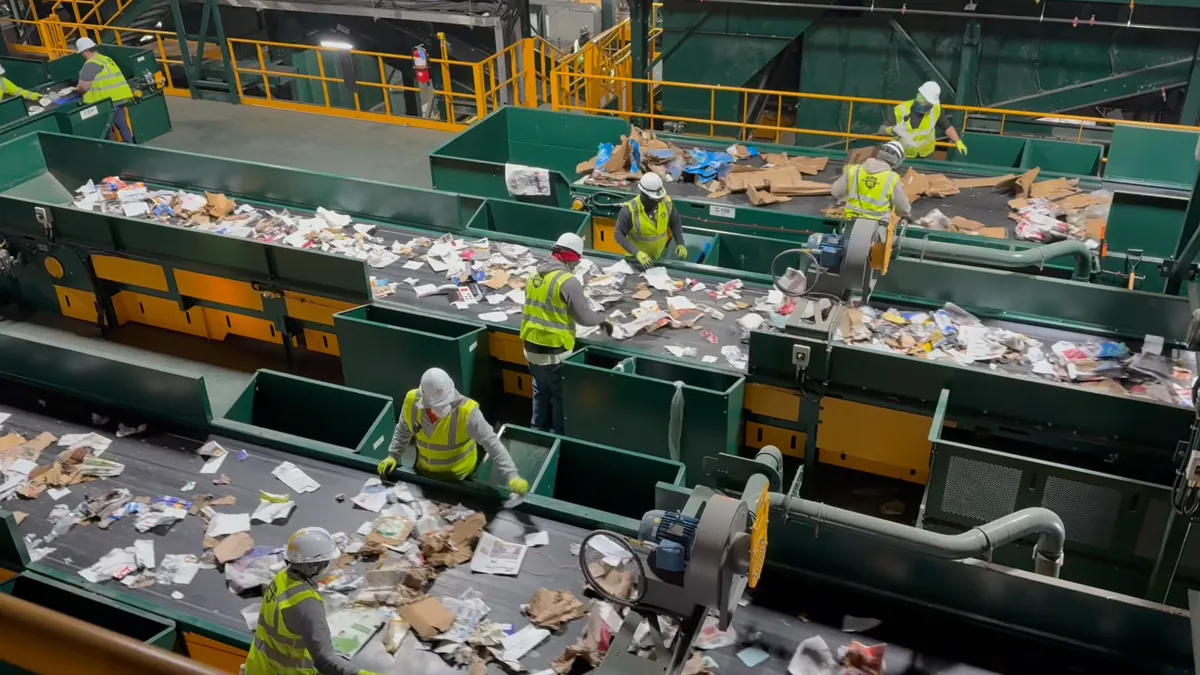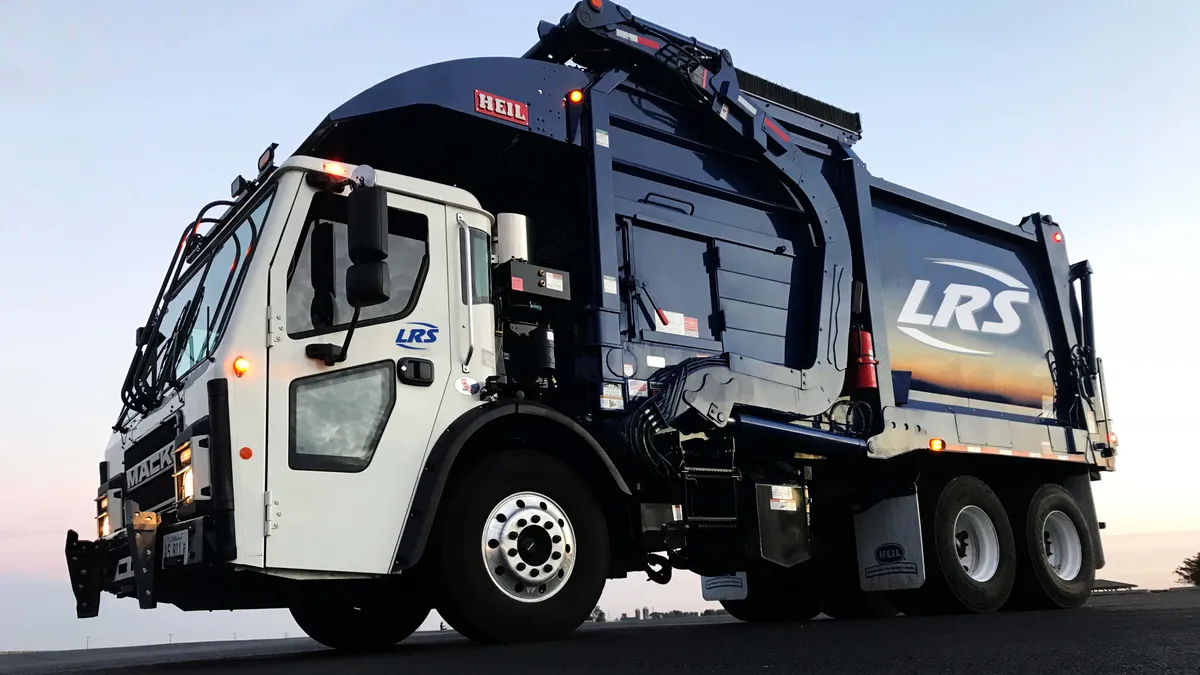The U.S. waste and recycling industry's top leaders are optimistic about economic trends coming out of the pandemic, even as they face new operational challenges, according to remarks during last week's WasteExpo.
Chief executives said the labor shortage and sustainability expectations were among the most notable changes in the past two years, since the industry gathered live for WasteExpo in 2019, while heightened acquisition activity remains a constant. Reflecting on lessons from the waning pandemic was also an undercurrent throughout the event.
"When [the pandemic] first started back in March, we had a lot of fears in our head. A lot of the leaders in the industry were starting to picture garbage piling up to our necks all over the country, and we didn't know what was going to happen," National Waste & Recycling Association CEO Darrell Smith said during a keynote session. Instead, he said the industry saw high levels of public support. "It could have been massive disaster, and the industry really did its duty."
Labor crunch
Staffing was top of mind for industry executives during the week, as critical headlines from around the country highlighted public- and private-sector service providers struggling to keep up service in some areas. This pressure, coming after high-profile public appreciation for the "essential" role of front-line workers, creates a delicate situation for industry leaders.
"We want people to view the industry positively, and if we're not collecting the garbage on a regular basis, communities and elected officials aren't interested in hearing excuses," Solid Waste Association of North America CEO David Biderman said in an interview. "I think there's a sharp distinction being drawn between the essential workers, the heroes – of which sanitation collection workers are one of many – and the service providers who, rightly or wrongly, are being blamed for not picking up the trash on a regular basis."
Biderman pointed to a recent SWANA paper that recommends short-term solutions, like potentially changing collection frequency or service options, as well as using temporary workers. Long-term options include raising wages, reframing the value of industry careers and investing in automated trucks.
One positive development during the pandemic was that companies found ways to become more efficient, said one speaker, but that's likely not enough to offset the near-term hiring issue.
"People got leaner. Overall they cut costs, they rationalized their equipment," said Brian Miller, vice president of Comerica Bank's environmental services department, during a session. Miller believes the recent stimulus payments and enhanced unemployment benefits are a serious issue because "you’re still incenting people to stay home."
Concerns about temporarily higher unemployment benefits were a common talking point throughout the week. CEOs from companies such as Waste Management and Waste Connections raised it as a key issue. Michael E. Hoffman, a managing director at Stifel, said extra federal money may be a factor in the labor shortage but is likely not the primary one. Instead, he pointed to a longer trend that predated the pandemic of young people showing less interest in entering vocational occupations.
GFL CEO Patrick Dovigi agreed the benefits were having an effect, but he said current labor pressures are "nothing the industry hasn't seen before." Like others, he said GFL's turnover is often highest on residential rear-load routes that can be a "tough slog" and may be best suited for younger workers.
Executives said they don't believe the industry's track record of high fatality rates for collection workers is necessarily a deterrent, and new SWANA data shows the trend may be improving, but the industry views ongoing investment in automated collection as an important way to reduce safety incidents and turnover. While keeping wages competitive came up, executives more often pointed to a less tangible factor.
"A dollar up, a dollar down isn't what keeps a driver. It's creating the right working environment, the right culture, and treating people like human beings. I think that's what keeps people engaged within the company," said Dovigi in an interview after the event. Dovigi added that he hopes "there's a lot of goodwill that's been built up" because many companies avoided layoffs during the pandemic.
Waste Management CEO Jim Fish agreed workplace culture and benefits are the main factors, but he also said company leadership would be assessing wages at an upcoming strategy meeting.
"There is a bit of a crisis here, in terms of hiring for some of these jobs. How do we take advantage of it?" Fish said in an interview after Expo. "Part of it is doing a better job of marketing who WM is to prospective employees and part of it may be changing the wage scale a bit... As opposed to being reactive all the time, how about we be proactive? And that potentially becomes a benefit for us when, in fact, right now we're looking at it as a threat."
Waste Management recently announced a program to cover education costs for employees and their dependents as the latest way to potentially improve retention and attract new candidates. In another example of different tactics, Fish outlined plans to partner with local high schools in Houston and offer graduating students jobs with the company.
The value of long-term industry employment came up multiple times during the week. Republic Services CEO Jon Vander Ark said in an investor summit panel that his company is working to show a possible career path for every employee. According to Fish, 10% of drivers who stay with Waste Management for more than a year have a net worth of $250,000 in their 401(k)s, and six drivers have more than $1 million.
Expanding the potential labor pool came up as a necessity, with speakers such as NWRA's Smith calling out the need to bring in more women and "second chance" hires. Immigration, which came up at WasteExpo 2019, was less of a talking point this year but could also still play a role. Fish said an updated and "well-thought-out" national immigration policy could present new workforce opportunities and be beneficial to a wide range of industries.
Environmental pressures from investors, new administration
Beyond the current labor shortage, one of the most notable recent industry changes executives noted is the greater focus on environmental, social and corporate governance (ESG) plans.
The shift is evidenced by a round of new climate targets from companies, driven in part by heightened investor and customer expectations. Waste Management recently announced the appointment of its first chief sustainability officer, and Hoffman described ESG as "table stakes" for modern companies looking to stay competitive.
“E is the weak link," he said during a panel, adding that companies believe they can meet the mark and feel like "it’s not that we’re being bad actors, we just never collected the data."
Landfills remain the industry's greatest source of greenhouse gas emissions, and the industry is seeing some new gas-to-energy investments, but fleets were the event's top technology focus as battery electric vehicle technology evolves rapidly.
"I'm more confident now than I've ever been that this is going to happen at scale," Vander Ark said, anticipating large orders being possible within the next three years. This will likely start with purchases of electrified chassis and happen as part of the company's natural replacement cycle. “The idea of us driving our entire diesel or CNG fleet into the ocean and starting over isn’t going to happen either. So it will take time."
As for any business effects from the Biden administration's emphasis on environmental issues, multiple executives said it was too early to tell. The renewed national focus on environmental justice came up in multiple sessions as among the main areas to watch. For instance, Hoffman said companies are awaiting more specific expectations, and multiple speakers encouraged operators to develop risk profiles on their assets. NWRA also has a new task force addressing the topic.
Second half expectations
Industry leaders and observers see an increasingly positive economic picture for the rest of 2021, but they expect ongoing pandemic-related disruptions.
"I love the prospects right now for the world's economies. We've seen this boom coming out of COVID in the U.S., and I think you'll see that replicated in other countries," Fish said. "We've just got to get past some of these things like labor inflation, which I think we will get past, and like the supply chain pressures that we're seeing."
Biderman similarly said "there is clearly a supply chain problem" in terms of getting trucks or parts, and Comerica's Miller also called this out as a constraint because "it's very difficult to grow when you can’t get equipment."
This comes as industry observers anticipate upcoming earnings will show sequential commercial volume recovery over first-quarter results. This includes trends in Canada, which Dovigi said is expected to catch up over the summer after enacting more stringent pandemic restrictions.
"Once you get to September, I think, when the world kind of, sort of settles back into their new normal — office buildings come back, schools go back everywhere, you get all the sporting events back — I think that's going to drive incremental commercial volumes," he said. "I think we'll be in a very good spot coming into this last quarter of the year and, obviously, setting ourselves up reasonably well for 2022."
The remaining piece is how M&A activity will play out before the year ends, with multiple companies forecasting an active period of deals in the months ahead. The possible changes in capital gains tax rates, as well as increasingly expensive technology needed to stay competitive, are some of the considerations at play for potential sellers.
“This isn't just about garbage," said Hoffman, citing similar trends across multiple sectors. “You could see one of the greater transfers in family wealth in this country in the last 100 years in the next 18 months."
The other factor influencing M&A decisions may be fatigue coming out of the pandemic.
"That was a curveball for a lot of folks with regards to how the business was doing," Waste Connections CEO Worthing Jackman said in a keynote session. "This industry, as we all know, is firing on all cylinders. It's probably the best time right now we've had in a long time in this industry, given everything that's working well, and owners are making the decision that now is the time."



